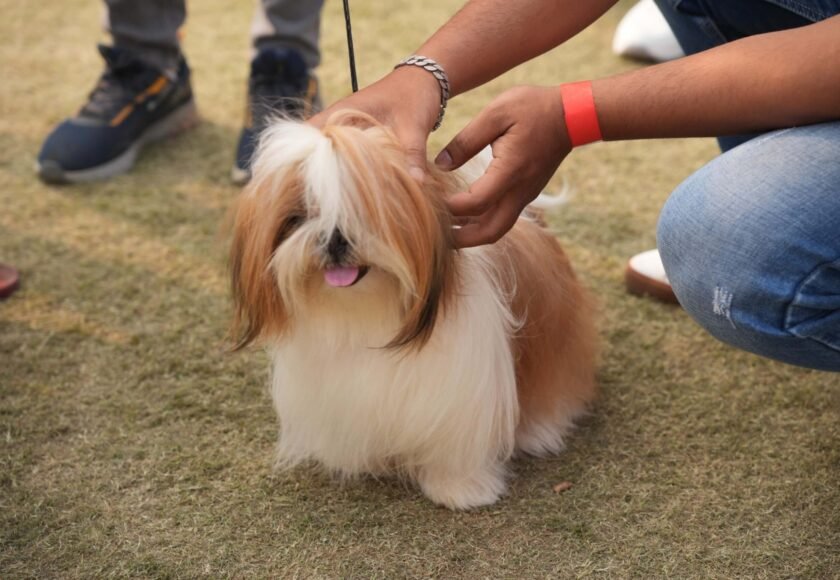When it meets expectations of powerful, stout, and lovable dog breeds, two together Pitbulls and Bulldogs frequently form the list—but they’re indeed completely varied in personality, strength levels, and care needs. While two breeds share an analogous lineage and have a faithful fan base, they offer obvious experiences as pets.
Pitbulls are popular for their athleticism, extreme strength, and acumen, while Bulldogs are legendary for their calm manner, wrinkly faces, and complacent type. Choosing between two together depends on your behavior, home environment, and what you’re expecting in a fuzzy friend.
Let’s decay the key distinctness and correspondences between these two standard breeds to help you resolve that individual is the perfect hold right to your classification.
Overview of Pitbull
Pitbulls are one of ultimate informed-about dog breeds—and too individual of ultimate misinterpreted. Known for their muscular build, extreme strength, and faithful type, Pitbulls are frequently lumped into a alone category, but the term literally refers to a group of breeds, containing the American Pit Bull Terrier, American Staffordshire Terrier, and any remainder of something.
Despite their tough exterior, Pitbulls are amazingly affectionate and population-romantic. They prosper in lazy shelters where they can be two together concerning matters and rationally busy, and when prepared correctly, they’re known to be dependable, mild, and complete of traits.
- Muscular and Athletic: Pitbulls are strong, agile dogs with high stamina—perfect for active families or individuals.
- Affectionate and Loyal: They form deep bonds with their owners and are known for being incredibly loyal and loving.
- Highly Intelligent: Pitbulls are quick learners and respond well to training, especially when using positive reinforcement.
- High Energy Levels: These dogs need regular exercise and mental stimulation to stay happy and well-behaved.
- Socialization is Crucial: Early and consistent socialization helps prevent aggressive behavior and promotes a balanced temperament.
- Often Misunderstood: Due to media portrayal and stereotypes, Pitbulls face unfair stigma, despite being great family pets when raised right.
Overview of Bulldog
Bulldogs, with their iconic wrinkled faces, stocky bodies, and unmistakable waddle, are one of the most recognizable and beloved dog breeds in the world. Originally bred for bull-baiting, they’ve come a long way from their rough-and-tumble past and are now known for their calm demeanor and affectionate nature.
Modern Bulldogs are low-energy, friendly companions that thrive in cozy, relaxed environments. They’re especially popular with city dwellers and families looking for a laid-back, loyal pet that doesn’t require excessive exercise or stimulation.
- Distinct Appearance: Bulldogs are known for their broad shoulders, short snouts, wrinkled skin, and unique, adorable expressions.
- Low Energy and Chill: Unlike Pitbulls, Bulldogs are content with short walks and lots of lounging, making them perfect for apartment life.
- Affectionate and Easygoing: They’re gentle and loving with their families, often forming strong bonds with kids and adults alike.
- Slower Pace: Bulldogs are not very active and prefer a slower lifestyle—ideal for those who want a more relaxed companion.
- Prone to Health Issues: Due to their flat faces and compact bodies, Bulldogs can face breathing problems, joint issues, and overheating.
- Great with Kids and Pets: Their calm and tolerant nature usually makes Bulldogs great playmates and peaceful housemates for other animals.
Related Blog: Are Bulldogs Dangerous? Myths vs. Reality
Pitbull vs Bulldog: Key Differences
Though Pitbulls and Bulldogs may look somewhat similar due to their muscular builds and shared ancestry, they are quite different in terms of energy levels, temperament, care needs, and even health concerns. If you’re choosing between the two, understanding these distinctions can help you make the right decision for your home and lifestyle.
Here’s a breakdown of the key differences between Pitbulls and Bulldogs:
1. Energy Level
- Pitbull: High energy and always ready to play or go for a run. Pitbulls need plenty of daily physical and mental stimulation to stay happy.
- Bulldog: Low energy and loves lounging. Bulldogs are satisfied with a short daily walk and lots of couch time.
2. Intelligence and Trainability
- Pitbull: Very intelligent and responsive to training. They thrive with structure and enjoy learning commands, tricks, and even agility.
- Bulldog: Intelligent but stubborn. Bulldogs can learn commands but may require extra patience and consistency due to their strong-willed nature.
3. Physical Build and Strength
- Pitbull: Lean, muscular, and athletic with powerful legs and a strong jaw—built for action and agility.
- Bulldog: Stocky and heavyset with a low center of gravity. Strong, but not built for endurance or speed.
4. Health and Maintenance
- Pitbull: Generally healthy with fewer inherited conditions, but may suffer from skin issues or hip dysplasia. They need regular exercise and grooming.
- Bulldog: Prone to breathing problems (brachycephalic), joint issues, and overheating due to their short snout and build. They require careful attention, especially in hot weather.
5. Temperament and Family Life
- Pitbull: Loving, loyal, and protective. They bond closely with their family and are usually good with kids when properly socialized.
- Bulldog: Gentle, laid-back, and affectionate. Bulldogs tend to be tolerant and are excellent with children and seniors alike.
6. Lifestyle Compatibility
- Pitbull: Best suited for active individuals or families who enjoy outdoor time and have the space to let their dog burn energy.
- Bulldog: Ideal for laid-back homes or city living where a slower-paced lifestyle fits best. Bulldogs don’t need much space or intense activity.
These differences reflect the unique charm of each breed—Pitbulls are the athletic, energetic go-getters, while Bulldogs are the chilled-out cuddle buddies. Choosing between the two depends on how much time, energy, and attention you can give to your furry companion.
Related Blog: Pug vs Bulldog: Which Breed is Right for You?
Things to Consider: Which Breed is Right for You?
Choosing between a Pitbull and a Bulldog ultimately depends on your lifestyle, activity level, and personal preferences. Both breeds offer unique qualities that make them wonderful companions, but they require different kinds of care and attention. Before bringing one home, it’s important to match their needs with your daily routine and environment.
Here are some key things to consider when deciding which breed is right for you:
1. Your Activity Level:
If you enjoy jogging, hiking, or playing outdoors, a Pitbull’s energy and stamina will be a perfect match. Prefer a more relaxed lifestyle? A Bulldog will be your ideal couch companion.
2. Living Space:
Bulldogs adapt well to apartments and small homes due to their low energy. Pitbulls can adjust too, but they need more space and outdoor access to burn off energy.
3. Time Commitment:
Pitbulls require more exercise, training, and interaction. If you have limited time, a Bulldog’s laid-back nature may be easier to manage day-to-day.
4. Training Patience:
Pitbulls are eager to learn and respond well to positive training. Bulldogs are stubborner and may need extra patience and consistency.
5. Health and Vet Care:
Bulldogs tend to have more health concerns that require ongoing vet attention and care. Pitbulls are generally healthier but still need regular check-ups.
6. Family Dynamics:
Both breeds are great with kids, but Bulldogs are often more tolerant of young children’s unpredictable behavior. Pitbulls, when socialized properly, are incredibly affectionate and protective.
7. Climate Sensitivity:
Bulldogs are very sensitive to heat and humidity and can overheat easily. Pitbulls are more adaptable to different climates but still need care during extreme temperatures.
Considering these factors can help ensure a happy and healthy match between you and your future furry friend.
Are Pitbulls Really Dangerous or Misunderstood?
Pitbulls are often at the center of debates around dog aggression, safety, and breed restrictions. They’ve been portrayed as dangerous, unpredictable, and even aggressive by nature—but the truth is far more complex. These stereotypes usually stem from media sensationalism, lack of understanding, and a few unfortunate incidents caused more by irresponsible ownership than the dogs themselves.
In reality, Pitbulls are intelligent, affectionate, and incredibly loyal dogs. When raised in a stable, loving environment with proper training and socialization, they are no more dangerous than any other breed. In fact, many Pitbulls work as therapy dogs, search-and-rescue partners, and loving family pets across the world.
Are Pitbulls Really Dangerous or Misunderstood?
Pitbulls are deeply misunderstood. Their strength and confidence require responsible handling, but their true nature is defined by how they are raised—not their breed label. With the right care, they can be gentle, loving, and fiercely devoted companions who just want to be part of the family.
Related Bog: Are Pitbulls Dangerous? Myths vs Facts Every Dog Owner Should Know
FAQs About Indian Cat vs Persian Cat
Still deciding between a Pitbull and a Bulldog? Here are answers to some frequently asked questions that can help you better understand the two breeds and how they might fit into your lifestyle:
Q1. Are Pitbulls more aggressive than Bulldogs?
Not inherently. Pitbulls are often labeled aggressive due to media portrayal, but with proper training and socialization, they can be just as gentle as Bulldogs. Aggression in any breed usually comes down to environment and upbringing—not breed alone.
Q2. Are Pitbulls good apartment dogs?
Pitbulls can adapt to apartment living if they get enough exercise and mental stimulation daily. They’re high-energy dogs, so regular walks, playtime, and training are essential for a happy and well-behaved Pitbull in smaller spaces.
Q3. Can Bulldogs live in hot climates like India?
Yes, but with caution. Bulldogs are sensitive to heat due to their short snouts and can easily overheat. In hot climates like India, they need to stay indoors during peak heat, have access to cool spaces, and avoid strenuous activity outdoors.
Q4. Which breed sheds more?
Both Pitbulls and Bulldogs shed moderately, but Bulldogs tend to shed slightly more due to their thicker, looser skin. Regular brushing can help manage shedding for both breeds.
Q5. Do Bulldogs get along with other dogs?
Generally, yes. Bulldogs are known for their calm and friendly nature, and with early socialization, they usually get along well with other pets. However, like any breed, temperament can vary from dog to dog.
Conclusion
Both Pitbulls and Bulldogs bring their own unique charm and personality to the table. Whether you’re drawn to the Pitbull’s energetic spirit or the Bulldog’s laid-back attitude, choosing the right breed ultimately comes down to your lifestyle, home environment, and how much time and effort you’re ready to invest in their care.
Pitbulls are ideal for active owners who can provide structure, exercise, and engagement, while Bulldogs are perfect for those looking for a mellow, affectionate companion with a lower-maintenance routine. Whichever breed you choose, with love, training, and commitment, either one can become a loyal and cherished member of your family.



